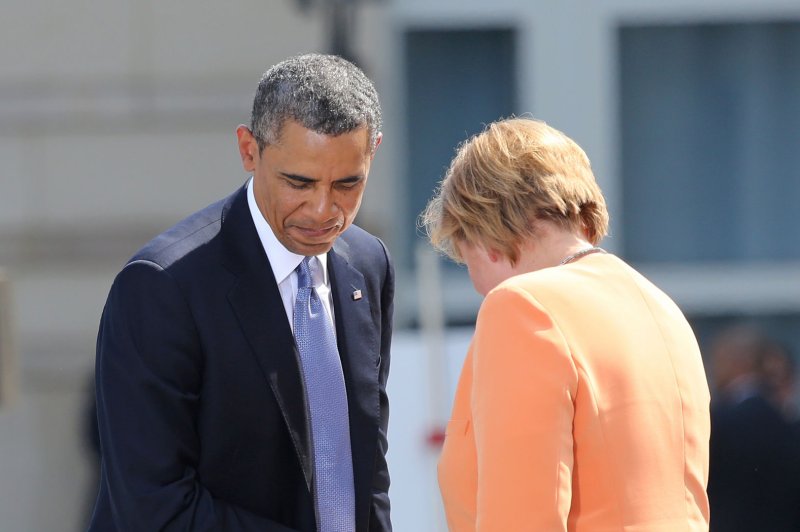U.S. President Barack Obama shakes the hand of German Chancellor Angela Merkel after she finished her speech at the Brandenburg Gate in Berlin on June 19, 2013. UPI/David Silpa |
License Photo
BERLIN, Nov. 19 (UPI) -- The National Security Agency spying scandal is poisoning talks to forge a far-reaching U.S.-EU trade deal, German Chancellor Angela Merkel said.
"The relationship with the U.S. and the negotiation of a trans-Atlantic free trade agreement are currently, without doubt, being put to the test by the accusations that have been aired against the U.S. about the gathering of millions of bits of data," Merkel told the lower house of Germany's Parliament.
Officials in Berlin expressed outrage last month after NSA document leaks by former NSA contractor Edward Snowden indicated Merkel's personal cellphone was tapped by the U.S. surveillance agency for a decade.
U.S. Senate Intelligence Committee Chairwoman Dianne Feinstein, D-Calif., later confirmed Merkel's phone was tapped since 2002.
German Social Democratic Party politician Martin Schulz, who is also president of the European Parliament, suggested at the time talks to create a Trans-Atlantic Trade and Investment Partnership, or free trade area, be put on hold until Berlin got to the bottom of Washington's surveillance of Germany, a powerful ally.
"The accusations are grave," Merkel told lawmakers Monday in her toughest words on the scandal so far.
She did not comment specifically about the bugging of her phone.
Merkel said new trust between Washington and Berlin was needed and would come only with transparency from both sides and a recognition the ties between the two countries guaranteed mutual freedom and security, the Financial Times reported.
She said relations with the United States remained extremely important for Germany and for Europe, the Times said.
But for the first time she also linked success of the free-trade talks, which seek to lower tariffs and harmonize regulation, to rebuilding the trust.















